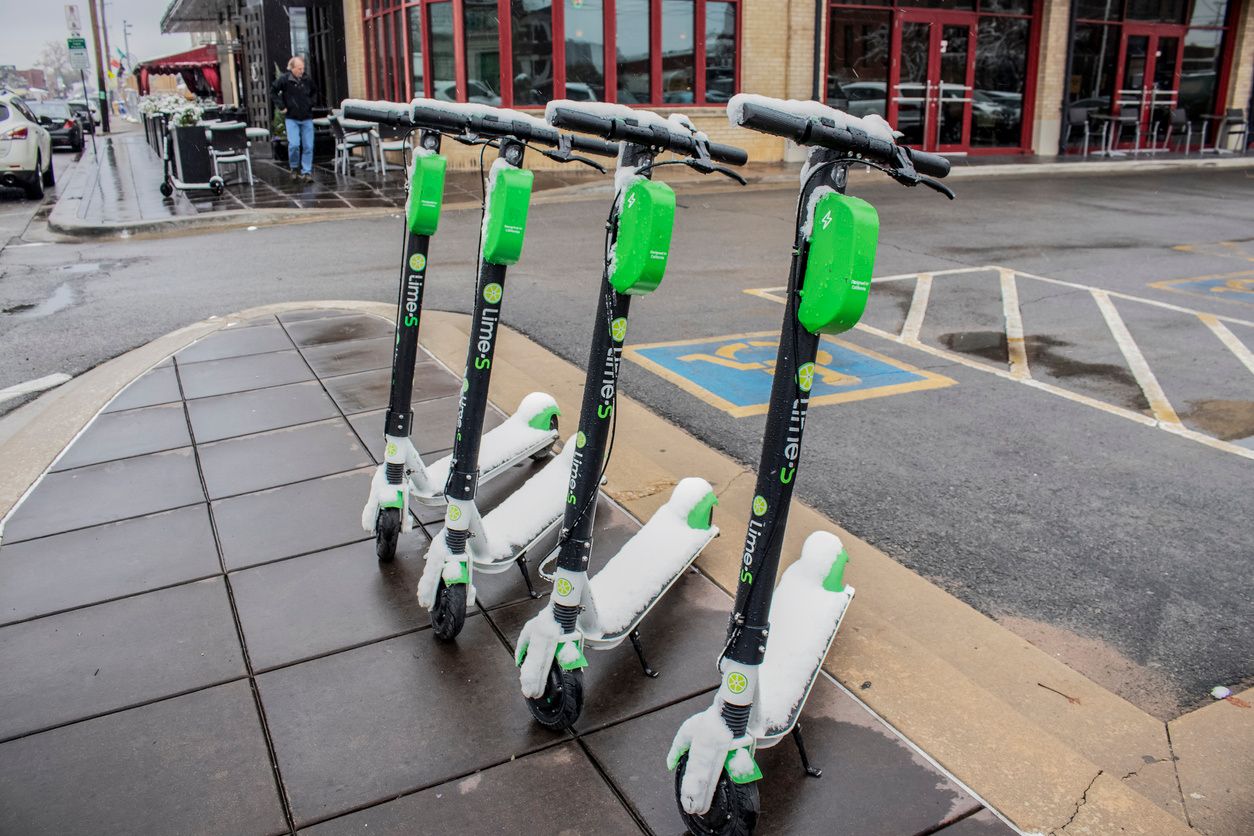Bird and Lime’s Achilles heel? The winter cold
As New York City considers giving a green light to electric scooters and bikes on its city streets (and let's be honest, sidewalks), it may want to know what happens to ridership numbers when the temperatures fall.
Bird and Lime, two of the better known scooter ride-share services, both had dramatic drops in users during November and December 2018, according to recent data from Second Measure. That dip is causing investors, some who have been eyeing these companies, to take a more critical view of them, reports The Information.
Read More:
- Bird e-scooters launches campaign to come to New York
- San Francisco overrun by e-scooters — the story so far
- 6 things a New Yorker should know before stepping on a Bird
While Bird and Lime enjoyed meteoric rises in users across all of 2018, that peaked sharply starting in October 2018, just as weather traditionally starts to dip in the northern hemisphere. Lime's rentals overtook Bird last summer, just around the time both Google and Uber invested in the company — and it has remained the leader.
But even with the backing of two tech companies, and access to their coffers, Lime saw sales drop this winter. Bird, which has raised $300 million in venture duding from storied firms including Sequoia, has tumbled as well, falling back to numbers that mirrored those from mid-summer, and losing the gain it earned.
E-scooter rentals work on a pay-as-you-go basis. Riders download an app, which directs them to where they can find an available scooter. The app unlocks the ride, which is charged by the mile or minute on top of a flat fee.
Cities across the U.S. have not always made e-scooters startups feel very welcome. Some of that may have to do with the companies dropping the scooters on to sidewalks, without seeking city approval as they did in Culver City, California. In Milwaukee, Wisconsin, city officials promised tickets to anyone riding one after Bird made the same move in 2018. Bird has retaliated in some cases, filing suit, for example, in November against Beverly Hills, California which banned e-scooters in July 2018.
Ridership drops might influence cities, like New York, still deciding on whether e-scooters will gain access to their streets. If the numbers of riders are falling, there may be fewer than expected — at least until warmer weather hits again.
